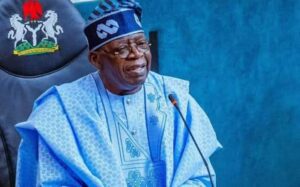BMO tackles TI, CISLAC on Buhari’s anti-corruption record, says era of impunity gone
The Buhari Media Group (BMO) has awarded low marks to the purported review of President Muhammadu Buhari’s anti-graft programmes in 2020 by Transparency International (TI) and its local sidekick, the Civil Society Legislative Advocacy Centre (CISLAC), describing it as premeditated and missing out the administration’s resounding anti-corruption successes and irreversible milestones.
In a statement signed by Niyi Akinsiju, the group’s Chairman, and Cassidy Madueke, its Secretary, the group downplayed the TI and CISLAC report on corruption as a violation of the standard scientific basis of data collection and objective analysis thereto, adding that what is apparent in the report is a tendency for sensationalism reflected in random amplification of issues generated from unverified side talks and media speculations.
“We observed a fixation with the management of recovered loot in the report without a near equivalence of updates on what the Federal Government is doing about structuring an institution of state in the contemplated Proceed of Crime and Asset Recovery Agency, and inclusive of the arrest and investigation of the head of the EFFC.
“For sure, a review of the state of corruption is not supposed to be a muckraking report as circulated by TI and CISLAC; we wonder what it has to say on the transparency governance system that now defines NNPC operations since the inception of the Buhari government.
“The NNPC used to be the cesspit of grand corruption in Nigeria and, before the coming of the Buhari government stridently rebuffed any call to give an account of its activities, a particular chief executive of the corporation declared that ordinary Nigerians couldn’t understand the accounting template of the NNPC even if it was made public. That was the extent of official impudence at that time. But now, things have turned full circle. For the first time since the establishment of the NNPC in 1977, more than 40 years ago, the NNPC started issuing auditor certified accounts in 2018 while it commenced monthly publication of its operations and financials in 2016. We did not see any mention of this milestone achievement in the TI’s report. This suggests bias and a determination to work to an already determined position by TI and its local subsidiary.
“The recommendations contained in the report, especially concerning implementing existing anti-corruption and anti-money laundering frameworks, is in our consideration not only mundane but pedestrian. More than all previous governments put together, the Buhari administration has implemented more anti-corruption policies and strategies with measurable impact, including the Presidential Initiative on Continuous Audit, The Treasury Single Account (TSA), enlistment into open government, and many others. We ask TI to stop its exercise in subterfuge by playing on innuendos and demand that it makes public any evidence-based proof of the allegations contained in the report.
“What has been established by the Buhari government, without dispute, is zero tolerance for corruption and end of impunity. If there’s any basis for a redress of the allegations, we are certain such would be swiftly redressed. It is a good development that, for the first time, everyone knows that corruption is no longer business as usual or rampant. That is the lesson of the Ibrahim Magu saga.”
BMO advised CISLAC to banish the thought of being invited to partake in the utilization and disbursement of seized corruption proceeds, adding that if this exclusion is what fuels their criticism, they can as well make haste on their road to perdition.
“The absence of civil societies elites and jobbers alike in the Presidential Task Force on COVID-19 is not an indication of corruption, as long as the PTF publishes its accounts and adheres to a strict budgetary template, which it is.
“With regards to the cost of renovating the National Assembly complex, it is also important that CISLAC understands the budgetary ecosystem. In the Appropriation Bill, estimates are proposals that the Executive Arm Government lays before the legislature for scrutiny and approval or amendments. Under Sections 88 and 89 of the Constitution, the National Assembly is expected to extend obligatory oversight. If they impute figures for the renovation of their offices, and such figures are deemed ‘unrealistic,’ the appropriate thing for TI and others alike to do would be to engage the legislators, bearing in mind that each Arm of Government is autonomous and enjoys self-accounting status.
“All in all, it is not difficult dismissing the report put together by TI and CISLAC, which clearly lacks rigour, in-depth research, and hits no pedigreed benchmarks. President Buhari’s anti-corruption records remain unassailable. Gossip platforms would sensationally receive this report from TI and CISLAC. That is where it rightly belongs.”




